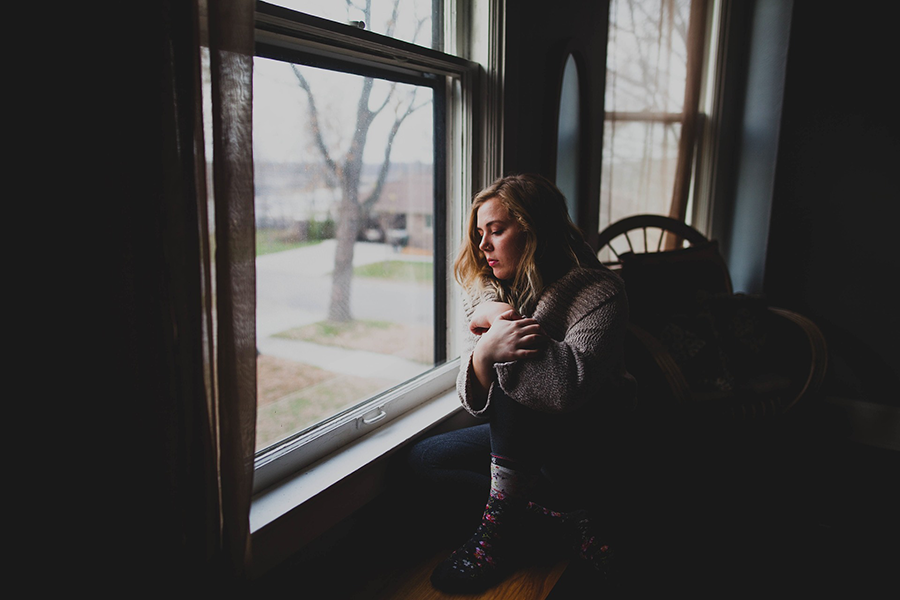Will the Government Do What’s Right in the Wake of the MMIW Report?
It’s been a long time coming, and a lot of work in the making, but the Missing and Murdered Indigenous Women and Girls report is finally here.
After three years of community consultation, testimony and research, the final product comes in the form of a 1,200-page document which makes 231 recommendations for justice. These Calls for Justice include sweeping changes to culture, health and wellness, media and social influencers, educators, and—of course—police departments and legal services.

These recommendations include things like, transforming Indigenous policing from mere delegation to an exercise in self-governance and self-determination, establishing Indigenous civilian police oversight bodies in all jurisdictions of Canada, and increasing Indigenous representation in all courts, including the Supreme Court of Canada.
The recommendations are varied and multifaceted, taking into account the all-encompassing and pervasive impact that colonialism has had on Indigenous communities.
They are also woven together with a common thread of respect, understanding, and connectivity. They encourage enhanced, comprehensive, and holistic support systems as well as community values such as education, acceptance, and appreciation. They highlight the importance of honour and dignity. They hold all Canadians accountable.
Further than that, the recommendations acknowledge the multidimensional reality of the world and the complex space that many Indigenous women and girls hold within it. They recognize the entangled aspects of intersectional identities and the oppression and stigma that can be experienced as a result. They explore the systematic barriers that diverse communities of Indigenous women and girls experience, and particularly those who identify as 2SLGBTQQIA.
But aside from making recommendations, the report also highlights the stark conditions faced by Indigenous women in Canada.
It emphasizes not just the horrendous and shocking loss of life suffered by Indigenous women and girls through colonial structures in this country, but also the systems that hold such powers in place and the profound loss of dignity that they suffer as a result.
The report uses jarring language, such as “genocide” and “national emergency”, to describe the manner in which Indigenous women have been treated in this country. While some critics have said that these terms are too harsh—not even our own Prime Minister could utter the word “genocide” at a news conference following release of the report—the reality of the its findings is much harsher.
Client Testimonials
Read more reviews from past clients:
Google Reviews or Lawyer Ratingz
Dealing with the Sarah Leamon Law Group was an absolute pleasure. They were friendly and efficient in communicating with me, and dealt with my case in a timely manner. They were thorough and meticulous in putting together a strong case that resulted in a WIN. Highly recommend their services.
K.R., Google Review
Sarah Leamon is amazing! She got back to me right away even though she was out of office! She not only jumped on my file quickly, she also got my prohibition reduced from 7 Months to 3 Months a BIG win in my eyes!!
Lawyer Ratingz Review
From my initial contact with Sarah, providing me with detailed information on next steps, to answering all my questions throughout the process and the representation (thank you, Hyemin!), the service offered by Sarah Leamon Law Group was top notch. Would highly recommend.
S.S., Google Review
Hyemin at Sarah leamon law group is a very respectful, kind, and bright lady. Their team was thorough with my case making the process less worrisome. Would recommend 10/10.
M., Google Review
Have had Sarah as my go-to for any and all my traffic issues. She is very compassionate and is excellent at explaining every part of the process and keeping your stress level way down. Multiple times ive hired Sarah and i am always completely confident she will get the best result, as she has done time and time again. wouldn't go anywhere else, definitely #1 in my eyes!
M.W., Google Review
Dealing with the Sarah Leamon Law Group was an absolute pleasure. They were friendly and efficient in communicating with me, and dealt with my case in a timely manner. They were thorough and meticulous in putting together a strong case that resulted in a WIN. Highly recommend their services.
K.R., Google Review
Sarah Leamon is amazing! She got back to me right away even though she was out of office! She not only jumped on my file quickly, she also got my prohibition reduced from 7 Months to 3 Months a BIG win in my eyes!!
Lawyer Ratingz Review
From my initial contact with Sarah, providing me with detailed information on next steps, to answering all my questions throughout the process and the representation (thank you, Hyemin!), the service offered by Sarah Leamon Law Group was top notch. Would highly recommend.
S.S., Google Review
Hyemin at Sarah leamon law group is a very respectful, kind, and bright lady. Their team was thorough with my case making the process less worrisome. Would recommend 10/10.
M., Google Review
Have had Sarah as my go-to for any and all my traffic issues. She is very compassionate and is excellent at explaining every part of the process and keeping your stress level way down. Multiple times ive hired Sarah and i am always completely confident she will get the best result, as she has done time and time again. wouldn't go anywhere else, definitely #1 in my eyes!
M.W., Google Review
Dealing with the Sarah Leamon Law Group was an absolute pleasure. They were friendly and efficient in communicating with me, and dealt with my case in a timely manner. They were thorough and meticulous in putting together a strong case that resulted in a WIN. Highly recommend their services.
K.R., Google Review
Sarah Leamon is amazing! She got back to me right away even though she was out of office! She not only jumped on my file quickly, she also got my prohibition reduced from 7 Months to 3 Months a BIG win in my eyes!!
Lawyer Ratingz Review
From my initial contact with Sarah, providing me with detailed information on next steps, to answering all my questions throughout the process and the representation (thank you, Hyemin!), the service offered by Sarah Leamon Law Group was top notch. Would highly recommend.
S.S., Google Review
Hyemin at Sarah leamon law group is a very respectful, kind, and bright lady. Their team was thorough with my case making the process less worrisome. Would recommend 10/10.
M., Google Review
Have had Sarah as my go-to for any and all my traffic issues. She is very compassionate and is excellent at explaining every part of the process and keeping your stress level way down. Multiple times ive hired Sarah and i am always completely confident she will get the best result, as she has done time and time again. wouldn't go anywhere else, definitely #1 in my eyes!
M.W., Google Review
Although words may be mixed, the bottom line will be a call to action.
The report’s recommendations cannot be seen as such. These are not mere suggestions or friendly advice. They are a call to action. They are imperatives. They are requirements. They are necessities.
Some more urgent than others, and more doable.
For example, creating better and more comprehensive community-based health services in Indigenous communities, coupled with sustainable, long-term programs aimed at violence prevention. Establishing Indigenous oversight bodies for police and creating RCMP policies to recruit and hire more Indigenous members are also not only necessary steps, but relatively achievable ones as well.
On the other hand, establishing a guaranteed income—which the report recommends—may be economically unfeasible in the long term.
Moreover, suggested reforms to the criminal justice system that would automatically create stricter sentencing principles for male offenders who have committed violence against Indigenous women may be socially undesirable and legally problematic.
After all, sentencing is a highly individualized process, and codifying certain requirements into the process may only serve to further the disparity between Indigenous communities and others. A more nuanced approach is necessary, which would be more properly achieved through judicial education and a higher number of Indigenous people sitting on the bench.
But increasing representation on the bench also means diversify the legal bar. It starts from the ground up and will take time.
It will also take resources.
The bottom line is that, in order for any change to occur, our government needs to be invested in it, which means that it must allocate the money and resources necessary to do so.
On the heels of Justin Trudeau’s announcement of a record breaking $1.4-billion federal investment to support the health of women and girls’ health care across the globe, there seems to be no reason why such funds would be unavailable to vulnerable women and girls right here in Canada.
Otherwise, we just may discover, once and for all, where our government’s priorities really lie.
You can also read this story in The Georgia Straight.




